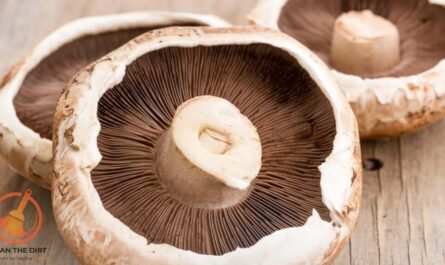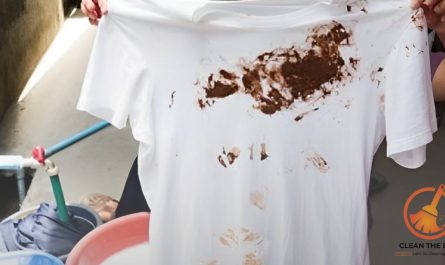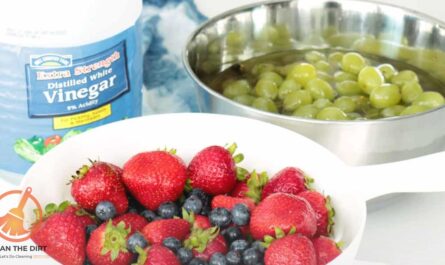Table of Contents
Introduction
Hello to all friends on this ultimate guide on how to clean grapes with baking soda. Are you ready to take your grape-snacking game to the next level? Say goodbye to biting into grapes with remaining pesticides or dirt residues because how to clean grapes with baking soda is about to become your new favorite kitchen hack. In our fast-paced world, it’s easy to overlook the importance of thoroughly cleaning our fruits before consumption. However, with the rising concerns about pesticide exposure and food safety, ensuring that your grapes are squeaky clean has never been more crucial.
Enter baking soda, the unnoticed hero of the kitchen cupboard. This humble ingredient doesn’t just work wonders in baking; it’s also a powerhouse when it comes to cleaning. When paired with grapes, it becomes a dynamic duo that promises to rid your favorite fruit of any unwanted impurities.
In this article, we’re going to dive into the art of grape cleaning, specifically focusing on how to clean grapes with baking soda. Whether you’re a health-conscious individual, a parent looking to provide the best for your family, or simply someone who enjoys snacking on nature’s candy, mastering this simple yet effective cleaning method will revolutionize the way you enjoy grapes.
So, grab your apron, and let’s explore the world of grape cleaning with baking soda. Get ready to elevate your snacking experience and savor every juicy bite knowing that your grapes are not just delicious but also perfectly clean.
Why Clean Grapes with Baking Soda?
You might be wondering, why go through the task of cleaning grapes with baking soda when a quick rinse under the tap seems sufficient? Well, let’s enter into the reasons why incorporating this simple yet effective cleaning method into your routine can make all the difference.
First and foremost, how to clean grapes with baking soda offers a natural solution to remove unwanted residues from your fruit. Grapes, like many other fruits, are often treated with pesticides to protect them from pests and diseases during cultivation. While these pesticides are deemed safe at certain levels, residual traces can stay on the surface of the grapes, even after rinsing with water. By using baking soda, you can effectively strip away these residues, ensuring that your grapes are not only delicious but also free from harmful chemicals.
Furthermore, baking soda acts as a gentle abrasive, making it incredibly effective at removing dirt, waxes, and other surface pollutants from the grapes. Its alkaline nature helps to break down stubborn residues, leaving you with cleaner and fresher-tasting grapes.
But that’s not all, cleaning grapes with baking soda isn’t just about removing pesticides and dirt. It’s also about promoting food safety and peace of mind. Whether you’re snacking on grapes yourself or serving them to your loved ones, knowing that you’ve taken the extra step to clean them thoroughly can provide reassurance and confidence in the quality of your food.
Additionally, baking soda is a pantry staple that’s easily available and affordable, making it a convenient choice for everyday use. Unlike commercial fruit cleaners that may contain harsh chemicals or artificial additives, baking soda offers a natural and eco-friendly alternative that aligns with your health-conscious lifestyle.
In summary, learning how to clean grapes with baking soda isn’t a difficult task. It’s a simple and effective practice that can enhance the safety, quality, and enjoyment of your favorite fruit. Remember it’s not important to clean only grapes with baking soda, you can clean apples or any type of fruit with baking soda. It will improve the fruit’s flavor, quality, and safety for your health. To maintain safety and hygiene, you should also take care to clean any fruits. So, the next time you reach for a bunch of grapes or any type of fruit, remember the power of baking soda and give them the thorough cleaning they deserve. Your taste buds and your health will thank you for it.
Preparation
Before we dive into the exciting world of how to clean grapes with baking soda, let’s ensure we have everything we need to get started. Preparation is key to achieving perfectly clean and delicious grapes, so let’s gather our materials and set the stage for success.
First of all, you’ll need a fresh bunch of grapes. Whether you prefer red, green, or black grapes, make sure to select ones that are plump, firm, and free from any signs of mold or decay. Quality grapes are essential for a satisfying snacking experience, so take your time to choose the best bunch available.
Next up, you’ll need the star of the show which is baking soda. This versatile kitchen staple is about to work its magic in cleaning your grapes, so make sure you have a box or container of baking soda on hand. It’s inexpensive, widely available, and incredibly effective at removing impurities from fruits and vegetables.
In addition to grapes and baking soda, you’ll also need water. Preferably, look for cold water as it helps to maintain the freshness and crispness of the grapes. Having a clean bowl or basin to soak the grapes in is also recommended, ensuring that they’re fully dipped in the baking soda solution for thorough cleaning.
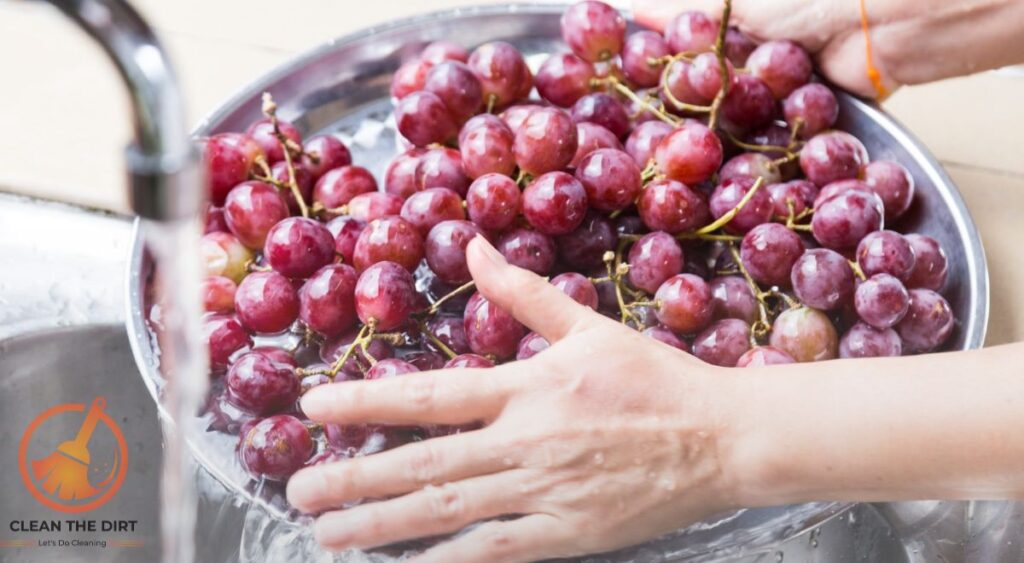
Once you’ve gathered all your materials, it’s time to roll up your sleeves and get ready to clean some grapes. But before we jump into the cleaning process, take a moment to appreciate the natural beauty of the grapes you’re about to clean. From their vibrant colors to their sweet aroma, grapes are truly a gift from nature and by cleaning them with baking soda, you’re taking the extra step to honor and respect that gift.
With everything set and ready to go, you’re now fully prepared to embark on the journey of how to clean grapes with baking soda. Get ready to witness the transformative power of this simple yet effective cleaning method as we dive into the step-by-step process. Clean grapes await, let’s make it happen.
How to Clean Grapes With Baking Soda? Step-by-Step Cleaning Process
Now that we’ve gathered our materials and set the stage, it’s time to dive into the heart of the matter which is how to clean grapes with baking soda. Follow these simple steps to ensure your grapes are sparkling clean and ready to enjoy.
Step 1: Rinse the Grapes
Start by placing your fresh bunch of grapes in a clean colander or mesh strainer. Give them a gentle rinse under cold running water, ensuring that all sides of the grapes are thoroughly wet.
Step 2: Prepare the Baking Soda Solution
In a clean bowl or basin, mix cold water and baking soda to create a cleaning solution. For every four cups of water, add about two tablespoons of baking soda. Until the baking soda is completely dissolved, swirl the mixture.
Step 3: Soak the Grapes
Once your baking soda solution is ready, carefully transfer the rinsed grapes into the bowl or basin. Ensure that the grapes are fully dipped in the solution, allowing the baking soda to work its magic in loosening dirt, pesticides, and other residues.
Step 4: Swirl and Soak
Gently swirl the grapes in the baking soda solution, ensuring that each grape is thoroughly coated. Allow the grapes to soak in the solution for about 5-10 minutes, allowing the baking soda to penetrate and lift away any impurities.
Step 5: Rinse Thoroughly
After the soaking period is complete, remove the grapes from the solution and transfer them back into the colander or mesh strainer. Give them another thorough rinse under cold running water, ensuring that all traces of baking soda and impurities are washed away.
Step 6: Dry and Enjoy
Once rinsed, shake off any excess water from the grapes and transfer them onto a clean kitchen towel or paper towel. To eliminate any last traces of moisture, give them a little pat. Now, your grapes are clean, fresh, and ready to enjoy.
Cleaning grapes with baking soda is a simple yet effective way to ensure that your favorite fruit is free from unwanted residues and contaminants. By following these easy steps in the guide on how to clean grapes with baking soda, you can enjoy delicious, clean grapes with peace of mind, knowing that you’ve taken the extra step to prioritize food safety and quality. So, grab a handful of your freshly cleaned grapes and savor the natural sweetness.
Tips and Tricks
How to clean grapes with baking soda is a straightforward process, but here are some additional tips and tricks to ensure that you get the most out of your cleaning experience.
1. Use a Colander or Mesh Strainer
When rinsing and soaking the grapes, use a colander or mesh strainer to contain them. This makes it easier to rinse them thoroughly under running water and ensures that they are fully submerged in the baking soda solution.

2. Stir Occasionally
While the grapes are soaking in the baking soda solution, give them a gentle stir or swirl occasionally. This helps to ensure that all the grapes come into contact with the solution, maximizing the effectiveness of the cleaning process.
3. Ensure Proper Drying
After rinsing the grapes, make sure to shake off any excess water and pat them dry with a clean kitchen towel or paper towel. Properly drying the grapes helps to prevent them from becoming soggy and extends their shelf life.
4. Store Cleaned Grapes Properly
Once cleaned and dried, store your grapes in a clean container or plastic bag in the refrigerator. This helps to maintain their freshness and extends their shelf life, allowing you to enjoy them for longer.
5. Use Organic Grapes When Possible
If available and within your budget, consider purchasing organic grapes. Organic grapes are grown without synthetic pesticides or fertilizers, reducing the need for extensive cleaning. However, it’s still a good practice to clean grapes with baking soda to remove any potential contaminants.
6. Experiment with Soaking Times
Depending on the level of dirt or residues on your grapes, you can adjust the soaking time in the baking soda solution. For lightly soiled grapes, a shorter soaking time may suffice, while heavily soiled grapes may benefit from a longer soak.
7. Make It a Family Activity
Cleaning grapes with baking soda can be a fun and educational activity for the whole family. Get everyone involved in the process, from rinsing and soaking to drying and storing. Not only does it teach valuable life skills, but it also encourages healthy eating habits from a young age.
By incorporating these tips and tricks from this guide on how to clean grapes with baking soda, you can ensure that your grapes are thoroughly cleaned and ready to enjoy. With a little extra care and attention, you can savor the natural sweetness of your grapes with confidence, knowing that they’ve been cleaned with the power of baking soda.
Benefits of Using Baking Soda
When it comes to how to clean grapes with baking soda, the benefits extend far beyond just achieving squeaky-clean fruit. Let’s delve into the various advantages of utilizing the power of baking soda for this simple yet effective cleaning task.
1. Natural and Safe
Baking soda, sometimes referred to as Sodium bicarbonate, is a harmless, naturally occurring chemical. Unlike harsh chemical cleaners, baking soda poses no risk of harmful residues or chemical exposure, making it an ideal choice for cleaning fruits and vegetables, including grapes.
2. Effective at Removing Residues
One of the key benefits of using baking soda for cleaning grapes is its effectiveness at removing residues such as dirt, pesticides, and waxes. The grapes are left clean and fresh as a result of baking soda’s mild abrasive action, which helps to lift and release stains from the grapes’ surface.
3. Versatile Cleaning Agent
Beyond its use in baking, baking soda is renowned for its versatility as a cleaning agent. From freshening up carpets to scrubbing away stains in the kitchen, baking soda can tackle a wide range of cleaning tasks with ease. When it comes to the task of how to clean grapes with baking soda, its versatility shines through, providing a simple yet powerful solution for achieving fresh fruit.
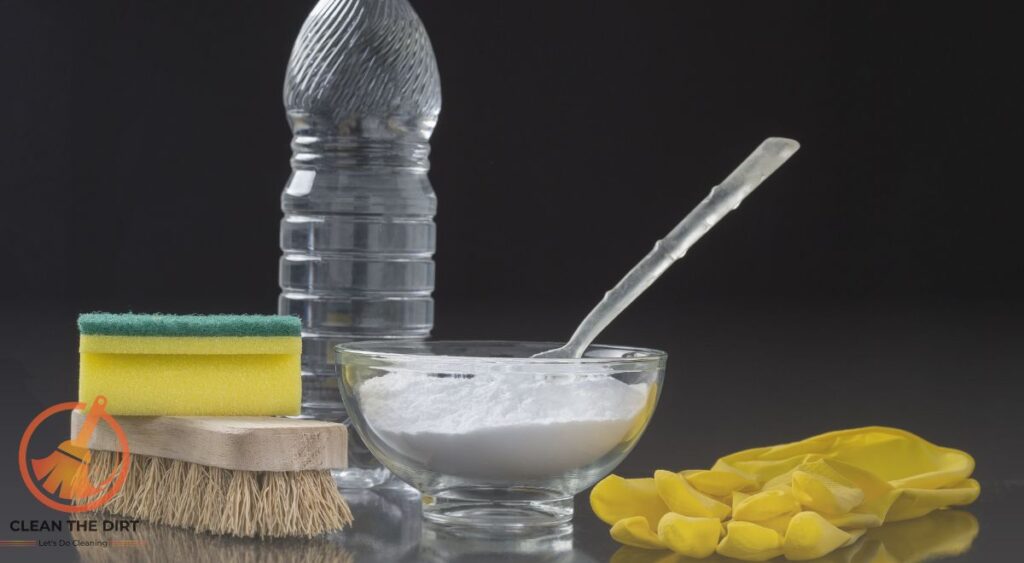
4. Affordable and Accessible
Another advantage of using baking soda is its affordability and accessibility. Unlike specialized fruit cleaners or detergents, which can be expensive and may contain harsh chemicals, baking soda is a pantry staple that is readily available at most grocery stores and is budget-friendly. This makes it a convenient choice for everyday cleaning tasks, including cleaning grapes.
5. Neutralizes Odors
In addition to its cleaning ability, baking soda also has the power to neutralize odors. Soaking grapes in a baking soda solution not only helps to remove residues but also eliminates any unwanted odors, leaving your grapes smelling fresh and delicious.
6. Environmentally Friendly
Using baking soda for cleaning grapes is not only good for your health but also for the environment. By opting for a natural cleaning solution, you’re reducing your reliance on harsh chemicals and minimizing your environmental footprint. It’s a small yet impactful step towards living a more sustainable lifestyle.
In short, the benefits of using baking soda for cleaning grapes are clear. From its natural and safe properties to its effectiveness at removing residues, baking soda is a versatile and environmentally friendly solution for achieving clean and fresh fruit. So the next time you’re faced with a bunch of grapes in need of cleaning, remember this guide on how to clean grapes with baking soda and see the magic of baking soda. Cleaning fruits like cleaning your strawberries, apples, grapes, and other fruits of these kinds like cleaning berries guarantees not only their freshness but also your family’s health and cleanliness.
Conclusion
And there you have done with it. How to clean grapes with baking soda is a simple yet effective practice that can elevate your snacking experience to new heights. By using the power of this humble kitchen staple, you can ensure that your grapes are not only delicious but also effectively clean and free from unwanted residues.
Throughout this journey on how to clean grapes with baking soda, we’ve explored the benefits of using baking soda, from its natural and safe properties to its effectiveness at removing dirt and pesticides. We’ve learned that baking soda isn’t just a baking ingredient but also it’s a versatile cleaning agent that can tackle a wide range of tasks, including cleaning grapes.
But beyond its cleaning prowess, how to clean grapes with baking soda is about more than just achieving clean fruit. It’s about prioritizing food safety, promoting healthy eating habits, and showing appreciation for the natural reward that surrounds us. By taking the extra step to clean our grapes with baking soda, we’re not only ensuring our own well-being but also respecting the environment and the food we consume.
So the next time you reach for a bunch of grapes, remember the power of baking soda and the transformative impact it can have on your snacking experience. With a little extra care and attention, you can enjoy delicious, clean grapes with confidence, knowing that you’ve taken the necessary steps to prioritize your health and the quality of your food.
Now it’s time to look at the following table which indicates the grapes’ cleaning methods and their effectiveness.
| Aspect | Cleaning Grapes with Baking Soda | Commercial Fruit Cleaners | Water Only Rinse |
|---|---|---|---|
| Effectiveness | Effective at removing dirt, pesticides, and residues from grapes. | May effectively remove surface contaminants, but may contain harsh chemicals. | Limited effectiveness in removing residues. |
| Safety | Safe and non-toxic. Baking soda is a natural cleaning agent. | May contain synthetic chemicals or additives that could pose health risks. | Safest option, but may not thoroughly clean grapes. |
| Cost | Inexpensive. Baking soda is a low-cost household item. | Can be more expensive than baking soda. | Cost-free. |
| Availability | Readily available at most grocery stores. | Available for purchase at supermarkets or online retailers. | Widely available. |
| Eco-Friendliness | Environmentally friendly. Baking soda is biodegradable and poses no harm to the environment. | May contain chemicals that are harmful to the environment. | Environmentally friendly. |
| Versatility | The safest option, but may not thoroughly clean grapes. | Typically designed for specific fruit cleaning purposes. | Limited versatility. |
| Residue on Grapes | Leaves no detectable residue on grapes when used in proper proportions. | May leave residues from synthetic chemicals. | Leaves no residues, but may not thoroughly clean grapes. |
Thank you for joining us on this move on how to clean grapes with baking soda. May your grapes be always clean, fresh, and bursting with flavor.
Frequently Asked Questions (FAQs) How to Clean Grapes with Baking Soda?
Why should I clean grapes with baking soda?
Cleaning grapes with baking soda helps to remove dirt, pesticides, and residues from the surface of the fruit, ensuring that they are safe to eat and free from harmful contaminants. Baking soda is a natural and effective cleaning agent that offers a chemical-free alternative to commercial fruit cleaners.
How does baking soda clean grapes?
Baking soda works as a gentle abrasive, helping to loosen and lift away dirt, pesticides, and other impurities from the surface of the grapes. When mixed with water, baking soda creates an alkaline solution that effectively cleans and deodorizes the fruit, leaving it fresh and clean.
Is it safe to clean grapes with baking soda?
Yes, cleaning grapes with baking soda is safe and non-toxic. Baking soda is a naturally occurring substance that is commonly used in cooking and baking, as well as for cleaning purposes. It poses no risk of harmful residues and is safe for consumption when used as directed.
Can I use baking soda to clean organic grapes?
Yes, baking soda can be used to clean organic grapes just like conventional grapes. While organic grapes are grown without synthetic pesticides or fertilizers, they may still harbor dirt, residues, or natural contaminants that can be removed with baking soda.
How long should I soak the grapes in the baking soda solution?
The soaking time can vary depending on the level of dirt or residues on the grapes. In general, soaking the grapes in the baking soda solution for 5-10 minutes is sufficient to achieve thorough cleaning. However, you can adjust the soaking time based on your preference and the condition of the grapes.
Can I use baking powder instead of baking soda to clean grapes?
No, baking powder is not a suitable substitute for baking soda when cleaning grapes. Baking soda (sodium bicarbonate) is the active ingredient that provides cleaning and deodorizing properties, whereas baking powder contains additional ingredients such as cream of tartar and cornstarch, which may not be effective for cleaning purposes.
Will cleaning grapes with baking soda affect their taste?
No, cleaning grapes with baking soda should not affect their taste. Baking soda is odorless and flavorless, and when used in the proper proportions, it will not leave any detectable residue on the grapes. Your cleaned grapes should taste fresh and delicious, just like untreated grapes.
Can I store cleaned grapes in the refrigerator?
Yes, once cleaned and dried, you can store grapes in the refrigerator to maintain their freshness. Place them in a clean container or plastic bag and store them in the refrigerator crisper drawer. Properly stored, cleaned grapes can stay fresh for several days, allowing you to enjoy them at your leisure.
You May Also Like: How to Clean Cast Iron Skillet After Use? Complete Guide


